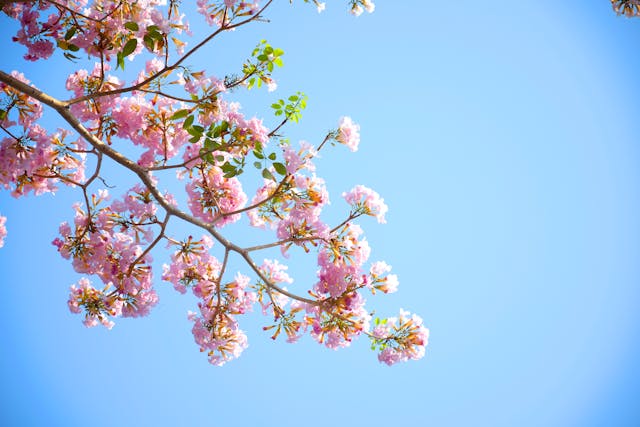Call Today to Schedule an Appointment: 212-319-5282
Seasonal Allergies vs. Perennial Allergies: Key Differences
Understanding the distinction between seasonal allergies vs. perennial allergies is crucial for effective treatment and long-term relief — especially in a place like New York City, where allergens can be constant and varied. Not all allergies are created equal. Some strike only during specific times of the year, while others seem to linger year-round with no relief in sight.
If you’re constantly sneezing, congested, or battling itchy eyes, this guide will help you identify whether your symptoms are seasonal or perennial — and what steps you can take to manage them effectively.

What Are Seasonal Allergies?
Seasonal allergies, also known as hay fever or seasonal allergic rhinitis, are triggered by allergens that appear at certain times of the year. These allergens are typically airborne pollens from:
- Trees: Common in spring (e.g., oak, birch, maple)
- Grasses: Peak during late spring and early summer
- Weeds: Especially ragweed, which dominates late summer into fall
Typical Symptoms of Seasonal Allergies:
- Sneezing
- Runny or stuffy nose
- Itchy, watery eyes
- Postnasal drip
- Fatigue due to disrupted sleep
These symptoms usually intensify during high pollen count days and may last weeks or months, depending on the season and your specific triggers.
What Are Perennial Allergies?
Perennial allergies occur year-round and are caused by continuous exposure to indoor allergens. These may include:
- Dust mites: Found in bedding, carpets, and upholstered furniture
- Pet dander: Proteins in animal skin flakes, saliva, and urine
- Mold spores: Often present in damp areas like bathrooms and basements
- Cockroach droppings: A common allergen in many urban environments
Typical Symptoms of Perennial Allergies:
- Chronic nasal congestion
- Frequent sinus pressure or infections
- Persistent coughing or throat clearing
- Itchy eyes and throat
- Ongoing fatigue or irritability
Because the exposure is constant, symptoms tend to be milder but more persistent than those from seasonal allergies.
Key Differences at a Glance
| Feature | Seasonal Allergies | Perennial Allergies |
|---|---|---|
| Timing | Specific seasons (spring, summer, fall) | Year-round |
| Common Triggers | Pollen (trees, grasses, weeds) | Dust mites, pet dander, mold |
| Onset | Sudden during allergy season | Chronic and ongoing |
| Location | Mostly outdoors | Mostly indoors |
| Relief Strategies | Pollen avoidance, antihistamines, nasal sprays | HEPA filters, frequent cleaning, allergen-proof bedding |
Diagnosis and Testing
Accurate allergy testing can confirm whether your symptoms are triggered by seasonal allergens, perennial allergens, or both. Tests may include:
- Skin prick testing: Identifies immediate allergic reactions to various substances
- Blood testing: Measures allergen-specific IgE antibodies in the blood
A personalized evaluation by an allergist ensures you receive the right treatment for your specific triggers.
Managing Seasonal and Perennial Allergies
Both types of allergies can be managed with a combination of lifestyle changes and medical treatment:
- Antihistamines and nasal sprays: Control sneezing, itching, and congestion
- Decongestants: Reduce swelling in nasal passages
- Immunotherapy (allergy shots): Offers long-term relief by desensitizing the immune system
- Environmental control: Use HEPA filters, control humidity, and clean regularly to reduce indoor allergens
Still Not Sure Which Allergy You Have?
It’s common for people to experience both seasonal and perennial allergies — especially in a dense, dynamic city like NYC. The best way to find out what’s causing your symptoms is through professional allergy testing and consultation.
Seasonal Allergies vs. Perennial Allergies: Schedule Your Allergy Evaluation in NYC
Whether your allergies are seasonal, perennial, or both, expert care can make all the difference. For personalized diagnosis and relief strategies, schedule your consultation with Dr. Boyan Hadjiev at:
Allergy, Asthma and Sinusitis P.C
Boyan Hadjiev, MD
30 East 40th Street
Suite 1200
New York, NY 10016
212-319-5282
Don’t let allergies rule your year — discover your triggers and find relief with the help of NYC’s trusted allergy specialist.
Serving all of New York City and the Tri State Area including Zip Codes: Top Allergist NYC Midtown, Chelsea and Clinton: 10001, 10011, 10018, 10019, 10020, 10036 | Gramercy Park and Murray Hill: 10010, 10016, 10017, 10022 | Greenwich Village and Soho: 10012, 10013, 10014 | Lower Manhattan: 10004, 10005, 10006, 10007, 10038, 10280 | Lower East Side: 10002, 10003, 10009 | Upper East Side: 10021, 10028, 10044, 10128 | Upper West Side: 10023, 10024, 10025
